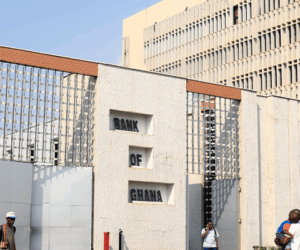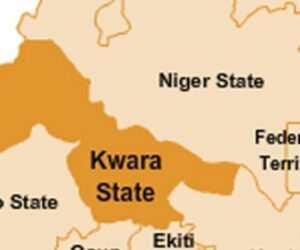Two senior lawyers’ scramble to represent General Hydrocarbons Limited in its debt dispute suit against the Asset Management Corporation of Nigeria (AMCON) and others stalled proceedings the Federal High Court in Lagos stalled on Wednesday.
The disagreement emerged in suit FHC/L/CS/1903/2025 before a judge, Ambrose Lewis-Allagoa, when Abiodun Layonu and Oluseye Opasanya – both Senior Advocates of Nigeria – separately announced appearances for the claimant.
Mr Layonu told the court he had been briefed by General Hydrocarbons.
But Mr Opasanya, appointed Receiver/Manager over the company by AMCON, insisted he is the lawful representative of the firm, arguing that the company had been in receivership before the suit was filed, an issue he said the former directors failed to disclose.
The conflicting positions triggered prolonged arguments on who was legally authorised to speak for the company.
Mr Lewis-Allagoa repeatedly pressed both lawyers to clarify who the court should recognise, given the subsisting receivership.
With no resolution, he ordered both sides to file written addresses on the issue of representation. The hearing continues on 3 December.
Contempt proceedings also stalled
The unresolved representation dispute also halted contempt proceedings earlier initiated by General Hydrocarbons against AMCON.
The contempt application was based on interim orders issued by Mr Lewis-Allagoa restraining AMCON and its agents from taking recovery steps, interfering with the company’s assets, or appointing a receiver pending the hearing of a motion.
The substantive suit concerns Oil Mining Leases (OMLs) 120 and 121, which were tied to a structured loan-recovery arrangement involving First Bank of Nigeria and Atlantic Energy Drilling Concept Limited.
To secure repayment of the non-performing loan, the former Department of Petroleum Resources (now NUPRC) considered allowing a qualified operator to run the assets. General Hydrocarbons (GHL) proposed to take over operations and apply revenue toward the loan.
A Tripartite Agreement subsequently signed by GHL, First Bank and AMCON documented GHL’s commitments and assigned it responsibility for the management of the two assets.
AMCON alleges mismanagement; appoints receiver
AMCON and First Bank later accused GHL’s former management of revenue diversion, non-payment of contractors, operational lapses, and risks that could trigger shutdown of the FPSO.
Acting under sections 34 and 48 of the AMCON Act, AMCON appointed a Receiver over GHL on 18 September, a move that legally suspended the powers of the company’s former directors.
AMCON argues that, despite this, the former directors filed the present suit in the company’s name without authority. The corporation says the interim orders obtained were used to frustrate the receivership.
Background
On 6 November, AMCON-appointed Receiver/Manager Oluseyi Akinwunmi publicly announced his takeover of the company—despite interim orders issued on 22 September 2025 restraining AMCON’s managing director, First Bank and the Attorney-General from acting against General Hydrocarbons.
A newspaper advertisement issued by the Receiver directed all debtors to pay him directly and ordered creditors to file proof of claims within 30 days.
He also instructed banks to hold all company funds pending further notice.
Court filings seen by PREMIUM TIMES show that Mr Lewis-Allagoa had earlier barred any enforcement action against the company or its assets, including freezing of accounts or appointment of a receiver.
Mr Akinwunmi, however, told PREMIUM TIMES there was no order against the receivership at the time he was appointed.
One of General Hydrocarbons’ lawyers also confirmed that AMCON later obtained a separate court order to enforce the receivership from another Federal High Court division, though details remain unclear.
Arbitration and loan legacy
The long-running dispute stems from a decade-old $490 million First Bank facility granted to Atlantic Energy Drilling Concepts for oil operations under NPDC agreements. The loan became non-performing.
AMCON purchased the debt as an Eligible Bank Asset, ultimately reflected as a $718 million exposure.
In October 2024, an arbitration panel ordered General Hydrocarbons to pay First Bank legal costs linked to the dispute.
How GHL entered the picture – Obaigbena
General Hydrocarbons is majority-owned by media executive Nduka Obaigbena.
In a letter to CBN Governor Yemi Cardoso dated 7 November 2024, Mr Obaigbena claimed that he was brought in by then FBN Holdings Chairman Oba Otudeko to help salvage First Bank’s exposure after key security documents for the Atlantic Energy loan were allegedly never executed.
He argued that First Bank’s loan to Atlantic Energy was unsecured and constituted a systemic risk, leading to federal government approval of OMLs 120 and 121 for GHL in 2021.
He said GHL entered agreements to develop the assets and share profits with First Bank to help clean up the bank’s balance sheet.
He accused First Bank of later frustrating the arrangement through delayed disbursements and new conditions, prompting litigation.
Multiple court battles
The dispute has since moved across several courts.
In December 2024, First Bank obtained orders freezing more than $225.8 million in assets linked to Mr Obaigbena and GHL.
READ ALSO: Fortune charms craze threatens vulture population in Kano
In March, the Federal High Court in Port Harcourt dismissed First Bank’s claims that GHL diverted crude-oil proceeds.
In September, the Court of Appeal overturned that judgment and directed that all crude-oil proceeds be paid into an interest-bearing escrow account.
Later in September, GHL filed the present suit in Lagos, asking the court to restrict AMCON’s enforcement powers to Atlantic Energy’s debts.












